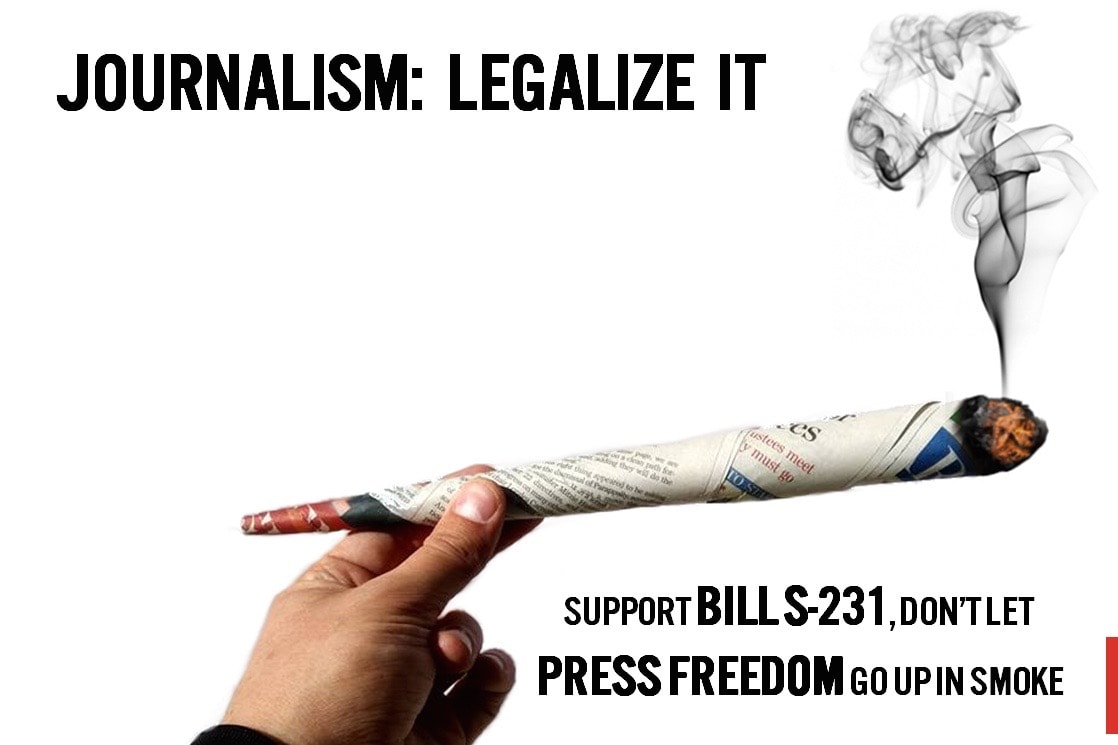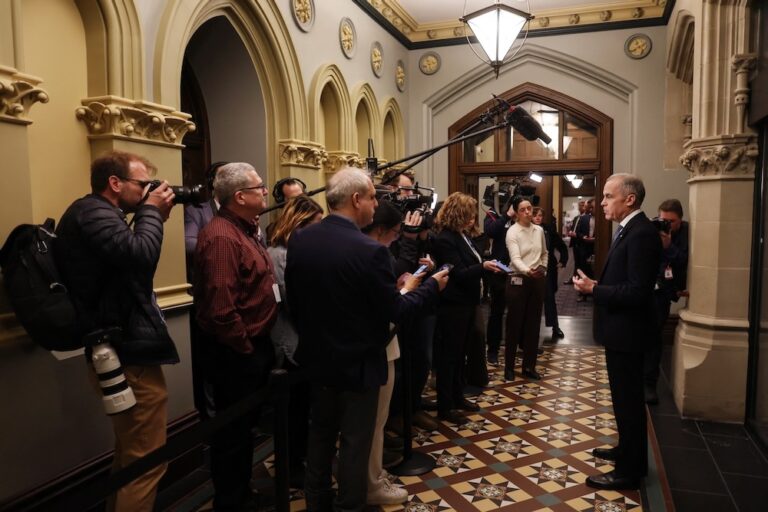The Trudeau government missed a crucial chance to extend badly-needed journalist protections, leaving Canada as one of the only industrialized countries in the world lacking legislation to protect confidential sources.
This statement was originally published on cjfe.org on 21 June 2017.
Canadian Journalists for Free Expression (CJFE) is disappointed that the House of Commons failed to pass Bill S-231, the Journalistic Source Protection Act, before rising for summer recess. By failing to pass the bill now the House has missed a crucial chance to take a stand for press freedom, and to extend badly-needed protections to confidential sources. Canada is one of the only industrialized countries in the world that lacks legislation for the protection of journalists’ sources. Given the possibility that the government will prorogue Parliament before the fall session begins, the bill faces the prospect of dying while awaiting passage in the House of Commons.
“We’re disappointed that Members of Parliament were unable to take this simple step to protect press freedom in Canada,” says Tom Henheffer, Executive Director of Canadian Journalists for Free Expression. “Bill S-231 would be the beginning of full legal recognition for the role of journalists in serving the public and protecting democracy. Instead journalists and their sources will remain vulnerable to inconsistent or unfair treatment by the courts. Its swift passage needs to be a priority when MPs return in the fall.”
Bill S-231 was unanimously adopted by the Senate on third reading in April. The private member’s bill was authored by Conservative Senator Claude Carignan, former Leader of the Opposition in the Senate. Henheffer appeared before the Standing Committee on Public Safety on June 19, 2017, to argue for the importance of the bill.
CJFE led the fight for the passage of Bill S-231 since its introduction in November 2016. On February 25, 2017 CJFE led a coalition of civil society, media and labour organizations in five locations across the country to rally for government action on freedom of the press. A core demand of those protests included the passage of S-231. Thousands more from around the world joined in on social media to call for greater protections for press freedom. Executive Director Tom Henheffer co-authored an op-ed in the Ottawa Citizen in February making the case for the bill’s importance.
When Canada fell four spots to 22nd in Reporters Without Border World Press Freedom Index, CJFE hit television networks and radio stations across the country, decrying the decline in media freedom and highlighting the importance of the bill before millions of Canadians. CJFE mobilized a global coalition of press freedom organizations on World Press Freedom Day, May 3, to send a joint letter to Prime Minister Justin Trudeau calling on his government to support the bill, and launched a letter-writing campaign involving hundreds of Canadians. CJFE also traveled to Ottawa to directly lobby Parliamentarians and senior policy-makers to support the bill.
This fight is at a standstill, but it’s not over. CJFE will continue to fight to ensure journalists and their sources are given the protections they need to do their job, starting with getting this bill passed.
Bill S-231 amend the Canada Evidence Act to protect the confidentiality of journalistic sources. It would allow journalists to refuse disclosure for information or documents that identify or are likely to identify a journalistic source. This condition applies in all cases unless the information or document cannot be obtained by any other reasonable means and the public interest (for example, an exigent security situation) outweighs the public interest in preserving the confidentiality of the journalistic source. The bill also reverses the burden of proof for demonstrating the public interest need for disclosure, removing the onus from the journalist to defend their sources and transferring it to the requesting party who must prove the need.
The bill also amends provisions of the Criminal Code, so that only a judge of a superior court could issue a search warrant against a journalist. This would ensure that justices of the peace, who approved the surveillance of journalists in Quebec, would not be allowed to issue such warrants. It also allows a judge to consult a special advocate who would be responsible for defending the interests of freedom of the press before the court.
Responsible reliance on confidential sources is a recognized practice by journalists in providing information to society when reliance on attributable sources of information is not possible. In recent years, it has been increasingly recognized in judicial rulings and by public office holders.
Recent events in Quebec and elsewhere in Canada demonstrate how journalists are vulnerable to often inconsistent or unfair treatment by the courts. This includes the issuance of search warrants and production orders which could threaten their sources. CJFE, along with Reporters Without Border and the Committee to Protect Journalist, has been granted intervenor status at the Chamberland Commission, which is conducting an investigation into police practices in Quebec. This follows revelations that police departments in Quebec and Montreal had spied on journalists’ phone records in an attempt to identify their confidential sources. Several journalists have testified that new sources are more reluctant to come forward since spying revelations were made public in November, 2016.

CJFE



